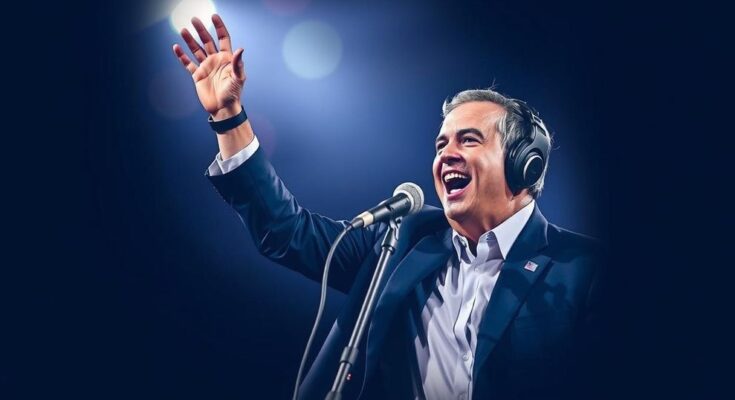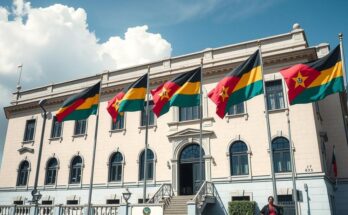Yamandú Orsi, a former history teacher, wins Uruguay’s presidential election, defeating Álvaro Delgado by over three percentage points. His victory restores the Broad Front to power after five years of conservative rule. Orsi, a protégé of former President José Mujica, aims for national dialogue and economic inclusivity as he prepares to serve all Uruguayans. He emphasizes a business-friendly approach and fostering integration within society.
In a significant political shift, Yamandú Orsi, a former history teacher, has emerged victorious in the presidential election in Uruguay. Orsi, representing the left-leaning Broad Front, secured a win over Álvaro Delgado, the candidate from the current conservative coalition, by a margin exceeding three percentage points during the run-off. Delgado graciously conceded and extended his congratulations to Orsi’s coalition, marking the latter’s re-entry into power after five years of conservative governance. The Broad Front previously held the presidency for 15 years from 2005 to 2020, prior to the ascent of outgoing President Luis Lacalle Pou, who was constitutionally barred from seeking a consecutive term this year.
At 57 years of age, Orsi is recognized as a protégé of former President José Mujica, noted for his humble lifestyle and fondly referred to as “the world’s poorest president.” Orsi’s background is similarly modest; he was raised in rural Uruguay in a household without electricity. Transitioning from his role as a history teacher, he became involved in local governance and served as the mayor of Canelones, the second-largest department of Uruguay. During his tenure, Orsi facilitated the establishment of a significant data center by Google in the region, highlighting his capacity for fostering economic development.
In his campaign, Orsi maintained a business-friendly approach, emphasizing his intention to refrain from increasing taxes that might deter investors. Addressing his supporters post-election, he underscored his commitment to inclusivity, asserting his desire to serve all 3.4 million citizens of Uruguay. He stated he is resolved to initiate a national dialogue and to be responsive to those who voted for his opponent, declaring, “I’m going to be the president who builds a more integrated country, where we set aside our differences and nobody is left behind, neither economically, socially or politically.”
Outgoing President Lacalle Pou indicated his willingness to collaborate with President-elect Orsi to ensure a seamless transition, culminating in Orsi’s inauguration scheduled for March 1 of the following year. While the Broad Front also secured a Senate majority, it fell short of achieving a majority in the Chamber of Representatives. Notably, this election, characterized by moderate candidates, diverged from the prevailing trend of pronounced divisions observed in other countries within the Western Hemisphere, such as Argentina, Brazil, and the United States.
The political landscape in Uruguay has undergone a transformative shift with the election of Yamandú Orsi, reflecting a countermovement against the conservative rule that dominated for the past five years. The Broad Front, previously in power from 2005 to 2020, has demonstrated significant political resilience, managing to reclaim the presidency amidst waning political support for more polarized factions in neighboring nations. This election signifies the continued relevance of moderate politicians in a region often marred by stark ideological divides.
In conclusion, Yamandú Orsi’s election as President of Uruguay marks a pivotal return to leftist governance, following a period of conservative leadership. His victory reflects the public’s desire for an integrative approach to national issues, focusing on inclusivity and economic development. As he prepares to step into office, Orsi’s commitment to dialogue and national unity presents a hopeful narrative for Uruguayan society, potentially setting a precedent for moderation in a politically charged region.
Original Source: www.bbc.com



